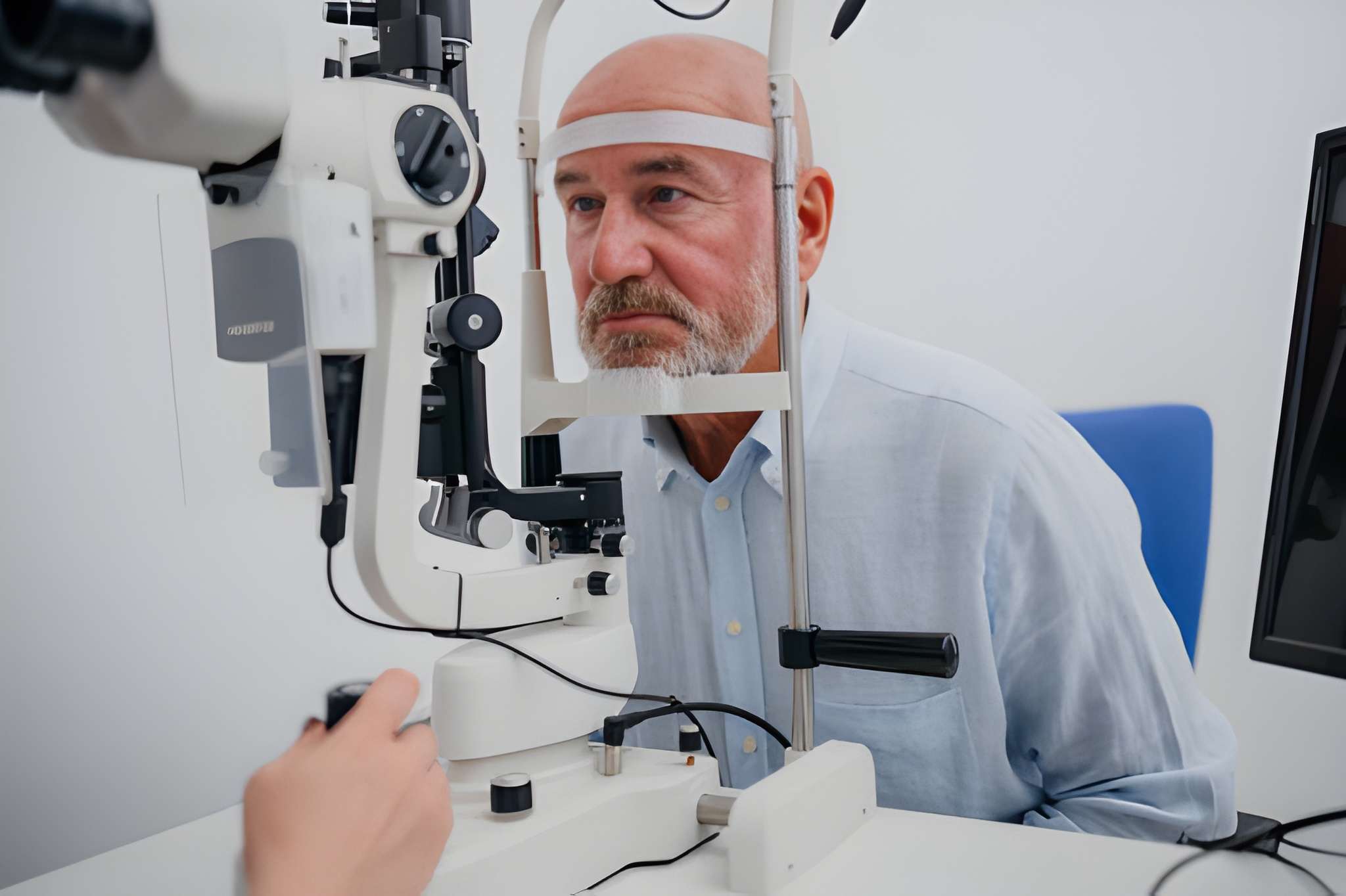Innovations in ophthalmology have revolutionized vision correction procedures, offering individuals the opportunity to achieve clearer eyesight and enhance their quality of life. One such advancement is the ICL procedure in Dubai, specifically designed to address refractive errors. ICL surgery holds promise for many seeking improved vision. However, it’s essential to recognize that not everyone is an ideal candidate for this procedure. This article delves into the factors determining suitability for ICL surgery, ensuring both patients and practitioners grasp the criteria for undergoing this transformative procedure.
Overview of ICL Surgery
ICL surgery involves putting a specially crafted lens into the eye. It corrects refractive errors like myopia, hyperopia, and astigmatism. Unlike traditional LASIK surgery, ICL surgery does not alter the cornea’s shape but works alongside it to enhance vision. The procedure has many benefits. These include high predictability. It also preserves corneal tissue and may be reversible. However, as with any surgery, ICL surgery has risks and complications. These include infection, inflammation, and high eye pressure.
Factors Affecting Suitability for ICL Surgery
We must carefully evaluate several factors. They will determine if a patient is suitable for ICL surgery.
Refractive Error Criteria:
- Myopia: The degree and stability matter. Higher levels may pose challenges. Patients with unstable myopia may have trouble achieving good results. This is due to vision that goes up and down.
- Hyperopia: The level and steadiness of hyperopia are crucial in candidacy assessment. Overcorrection or undercorrection risks must be carefully considered.
- Astigmatism: Astigmatism’s size and stability matter. They affect suitability. Big astigmatism can harm surgery.
Age Limitations:
- Minimum Age Requirement: Children’s eyes are still developing. So, they may not be suitable candidates. This is due to the risks of early surgery.
- Elderly patients may face challenges due to presbyopia and age-related eye conditions. They need a thorough evaluation before surgery.
Corneal Thickness:
- Doctors use preoperative measurements. They use methods like ultrasonic pachymetry or optical coherence tomography. These measurements assess corneal thickness.
- People with thin corneas may be at higher risk of corneal damage during surgery. They may not be suitable for ICL implantation.
Pupil Size:
- Pupil size is evaluated under both photopic and scotopic conditions to assess its impact on vision.
- Patients with large pupils may have glare, halos, or reduced contrast sensitivity. This is especially so in low-light environments.
Pre-existing Eye Conditions:
- Cataracts form a common issue: Patients with them may need treatment before ICL surgery. This will improve results and lower risks.
- Glaucoma: Proper management is essential. High eye pressure can harm surgery.
- Keratoconus: Keratoconus patients are not good candidates for ICL surgery. This is due to corneal issues.
- Retinal Detachment: Patients with a history of retinal detachment may need extra care. This is to reduce the risk of problems.
Also read: How Many Days of Rest Are Required After ICL Surgery?
General Health Conditions:
- Diabetes: Diabetes can harm the eyes and wound healing. This harm needs careful consideration before surgery.
- Autoimmune Diseases: Patients with autoimmune diseases may have an increased risk of post-operative complications. They may need specialized care.
- Pregnancy and Nursing: Pregnancy and breastfeeding are significant life stages that can impact a woman’s eligibility for ICL surgery. Hormonal fluctuations during pregnancy and breastfeeding can affect vision and eye health, making it advisable to postpone elective eye surgeries until after hormonal levels have stabilized post-pregnancy. Prioritizing the health and well-being of both mother and baby is paramount, and elective procedures should be postponed until deemed safe by healthcare professionals.
Unrealistic Expectations and Psychological Factors:
Counseling patients and screening them for mental issues are key. They help align expectations and readiness for surgery. It’s crucial to ensure patients have realistic expectations. They should know the likely outcomes and challenges of the procedure. Counseling gives key info about the surgery, risks, and aftercare. It helps people make informed choices. Also, screening helps find people who may struggle with surgery’s emotions. They may also have unrealistic expectations. By attending to mental factors, providers can boost patient satisfaction and the surgery. This helps recovery and outcomes.
Related Article: How long do implantable contact lenses last?
Stability of Refractive Error:
Stability of refractive error is key. It includes both prescription consistency and corneal shape. It is pivotal for assessing surgery candidacy. Patients must be monitored thoroughly. This will check how reliable their eye prescription is before any surgery. This period allows healthcare providers to see the patient’s refractive error over time. It ensures that surgical outcomes are predictable and optimal. By checking stability, healthcare pros can cut the risk of post-op problems. They can also increase the chance of success for the patient.
Conclusion:
ICL surgery has big benefits for fixing vision problems. But, not everyone is a good candidate for it. Age, health conditions, and corneal health are critical. Also, using contact lenses matters. They all influence if someone can have ICL surgery. Prospective patients should have thorough evaluations by qualified healthcare professionals. These will determine if they are suitable. If not, they will explore other options for vision correction. Healthcare providers can prioritize patient safety and well-being. This helps people make informed decisions about their vision care journey.
Contact Eye Doctor for Personalized Vision Correction Consultation
For personalized advice and expert care tailored to your individual needs, contact the best eye clinic in Dubai. Our experienced team is dedicated to providing comprehensive guidance and care, ensuring you explore all your vision correction options with confidence. Reach out to us today to schedule a consultation and experience the exceptional care offered at the best eye clinic in Dubai.
Also read: Is Implantable Contact Lens Painful?
Frequently Asked Questions
Can ICL surgery be performed on pregnant women?
No, it’s not advisable due to hormonal changes. Postponing surgery until after pregnancy is safe. It keeps both the mother and baby safe. It also keeps them safe while breastfeeding.
Is there an age limit for ICL surgery?
Generally, people under 21 and over 45 may not be suitable. This is due to age-related changes in eye structure and vision.
What health conditions may disqualify someone from ICL surgery?
Chronic diseases cause hormonal fluctuations, like diabetes. Medications linked to vision changes may affect suitability for surgery.
Can I continue wearing contact lenses before ICL surgery?
It’s best to stop wearing contact lenses before surgery. This will ensure accurate pre-op measurements and reduce risks.
Are there any risks associated with insufficient endothelial cell counts?
Yes, too few counts may increase the risk of complications. They can make people unsuitable for ICL surgery.
How long does an ICL surgery procedure typically take?
The surgery usually lasts around 30 minutes, with minimal recovery time afterward.
What are the benefits of ICL surgery for suitable candidates?
ICL surgery can cut dependence on glasses or contacts. It offers better vision and quality of life.
How can I determine if I’m a suitable candidate for ICL surgery?
Consulting with an eye care professional, like Dr. Qasim, is essential. They provide personalized evaluations and guidance tailored to your needs and circumstances.
Also read: Is ICL better than LASIK?











